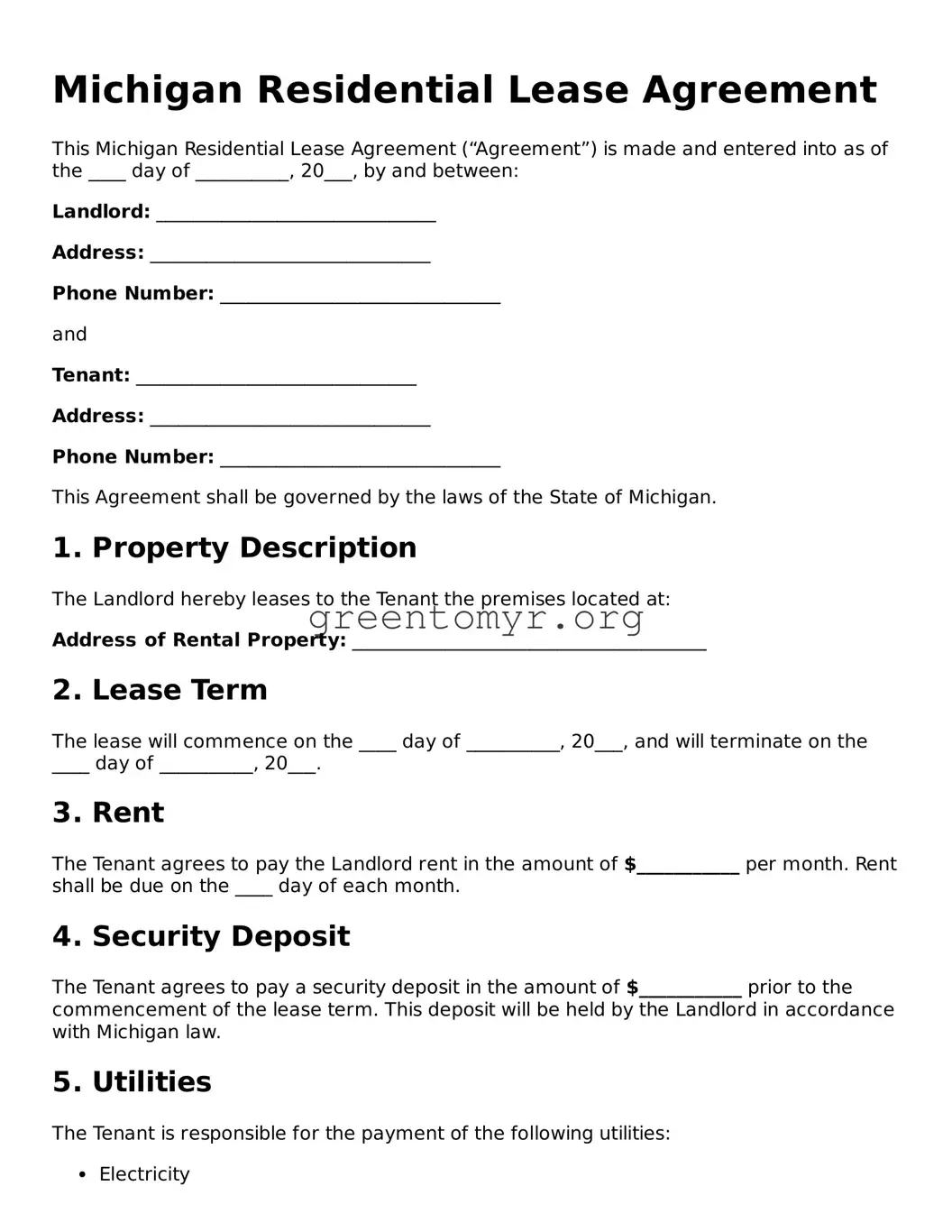Michigan Residential Lease Agreement
This Michigan Residential Lease Agreement (“Agreement”) is made and entered into as of the ____ day of __________, 20___, by and between:
Landlord: ______________________________
Address: ______________________________
Phone Number: ______________________________
and
Tenant: ______________________________
Address: ______________________________
Phone Number: ______________________________
This Agreement shall be governed by the laws of the State of Michigan.
1. Property Description
The Landlord hereby leases to the Tenant the premises located at:
Address of Rental Property: ______________________________________
2. Lease Term
The lease will commence on the ____ day of __________, 20___, and will terminate on the ____ day of __________, 20___.
3. Rent
The Tenant agrees to pay the Landlord rent in the amount of $___________ per month. Rent shall be due on the ____ day of each month.
4. Security Deposit
The Tenant agrees to pay a security deposit in the amount of $___________ prior to the commencement of the lease term. This deposit will be held by the Landlord in accordance with Michigan law.
5. Utilities
The Tenant is responsible for the payment of the following utilities:
- Electricity
- Gas
- Water
- Sewer
- Internet/Cable
6. Maintenance and Repairs
The Tenant shall maintain the premises in a clean and sanitary condition. The Landlord will be responsible for major repairs unless caused by Tenant's negligence.
7. Alterations
The Tenant shall not make any alterations to the premises without the written consent of the Landlord.
8. Termination of Lease
This lease may be terminated by either party by providing written notice at least 30 days prior to the intended termination date.
9. Governing Law
This Agreement shall be governed by and construed in accordance with the laws of the State of Michigan.
10. Signatures
Landlord Signature: ____________________________ Date: _______________
Tenant Signature: ____________________________ Date: _______________
By signing this Agreement, both parties acknowledge that they have read and understood its terms and conditions.
